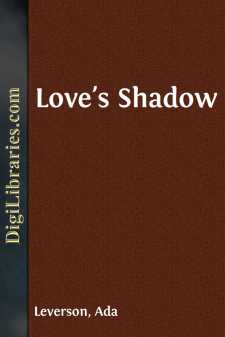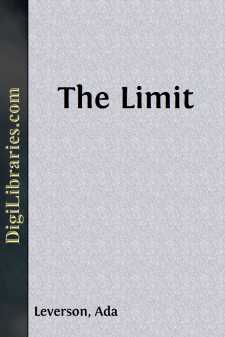Categories
- Antiques & Collectibles 13
- Architecture 36
- Art 48
- Bibles 22
- Biography & Autobiography 813
- Body, Mind & Spirit 142
- Business & Economics 28
- Children's Books 15
- Children's Fiction 12
- Computers 4
- Cooking 94
- Crafts & Hobbies 4
- Drama 346
- Education 46
- Family & Relationships 57
- Fiction 11828
- Games 19
- Gardening 17
- Health & Fitness 34
- History 1377
- House & Home 1
- Humor 147
- Juvenile Fiction 1873
- Juvenile Nonfiction 202
- Language Arts & Disciplines 88
- Law 16
- Literary Collections 686
- Literary Criticism 179
- Mathematics 13
- Medical 41
- Music 40
- Nature 179
- Non-Classifiable 1768
- Performing Arts 7
- Periodicals 1453
- Philosophy 64
- Photography 2
- Poetry 896
- Political Science 203
- Psychology 42
- Reference 154
- Religion 513
- Science 126
- Self-Help 84
- Social Science 81
- Sports & Recreation 34
- Study Aids 3
- Technology & Engineering 59
- Transportation 23
- Travel 463
- True Crime 29
Bird of Paradise
by: Ada Leverson
Description:
Excerpt
CHAPTER I
EXCUSES
POOR Madeline came into the room a little flustered and hustled, with papers in her muff. She found Bertha looking lovely and serene as usual.
Madeline Irwin was a modern-looking girl of twenty-three; tall, thin, smart and just the right shape; not pretty, but very sympathetic, with thick dark hair and strongly marked eyebrows, a rather long and narrow face, delicately modelled, a clear white complexion, and soft, sincere brown eyes.
Bertha—Mrs. Percy Kellynch—was known as a beauty. She was indeed improbably pretty, small, plump and very fair, with soft golden hair that was silky and yet fluffy, perfectly regular little features, and a kind of infantine sweetness, combined with an almost incredible cleverness that was curious and fascinating. She was of a type remote equally from the fashion-plate and the suffragette, and was so physically attractive that one could hardly be near her without longing to put out a finger and touch her soft, fair face or her soft hair; as one would like to touch a kitten or a pretty child. And yet one felt that it would not be an entirely safe thing to do; like the child or the kitten she might scratch or run away. But it is probable that a large average of her acquaintance had been weak enough—or strong enough—to give way to the temptation and take the risk.
This charming little creature sat in a room furnished in clear, pale colours—that was pink, white and blonde like herself. Madeline sat down without greeting her, saying in a scolding voice, as she rustled a letter:
“He’s refused again … more excuses … always, always excuses!”
“Well, all the better; excuses are a form of compliment. I’d far rather have a lot of apology and attenuation than utter coolness,” said Bertha consolingly. She had a low, even voice, and rarely made a gesture. Her animation was all in her eyes. They were long, bluish-grey, with dark lashes, and very expressive.
“Oh, you’d like a man to write and say that he couldn’t come to dinner because it was his mother’s birthday, and he always dined with her on that occasion, and besides he was in deep mourning, and had influenza, and was going to the first night at the St. James’s, and was expecting some old friends up from the country to stay with him, and would be out of town shooting at the time?”
“Certainly; so much inventive ingenuity is most flattering. Don’t you think it’s better than to say on the telephone that he wouldn’t be able to come that evening as he wouldn’t be able to; and then ring off?” said Bertha.
“Rupert would never do that! He’s intensely polite; politeness is ingrained in his nature. I’m rather hopeless about it all; and yet when I think how sometimes when I speak to him and he doesn’t answer but gives that slight smile …”
“How well I know that slight, superior smile—discouraging yet spurring you on to further efforts! … Rupert—Rupert! What a name! How can people be called Rupert? It isn’t done, you’re not living in a feuilleton, you must change the man’s name, dear.”
“Indeed I sha’n’t! Nonsense; it’s a beautiful name! Rupert Denison! It suits him; it suits me. Bertha, you can’t deny it’s a handsome, noble face, like a Vandyke portrait of Charles I, or one of those people in the National Gallery. And he must take a certain amount of interest in me, because he wants me to learn more, to be more cultured. He’s so accomplished! He knows simply everything. The other day he sent me a book about the early Italian masters.”
“Did he, though? How jolly!”
“A little volume of Browning, too—that tiny edition, beautifully bound.”
Bertha made an inarticulate sound.
“And you know he found out my birthday, and sent me a few dark red roses and Ruskin’s Stones of Venice.”
“Nothing like being up to date,” said Bertha....







